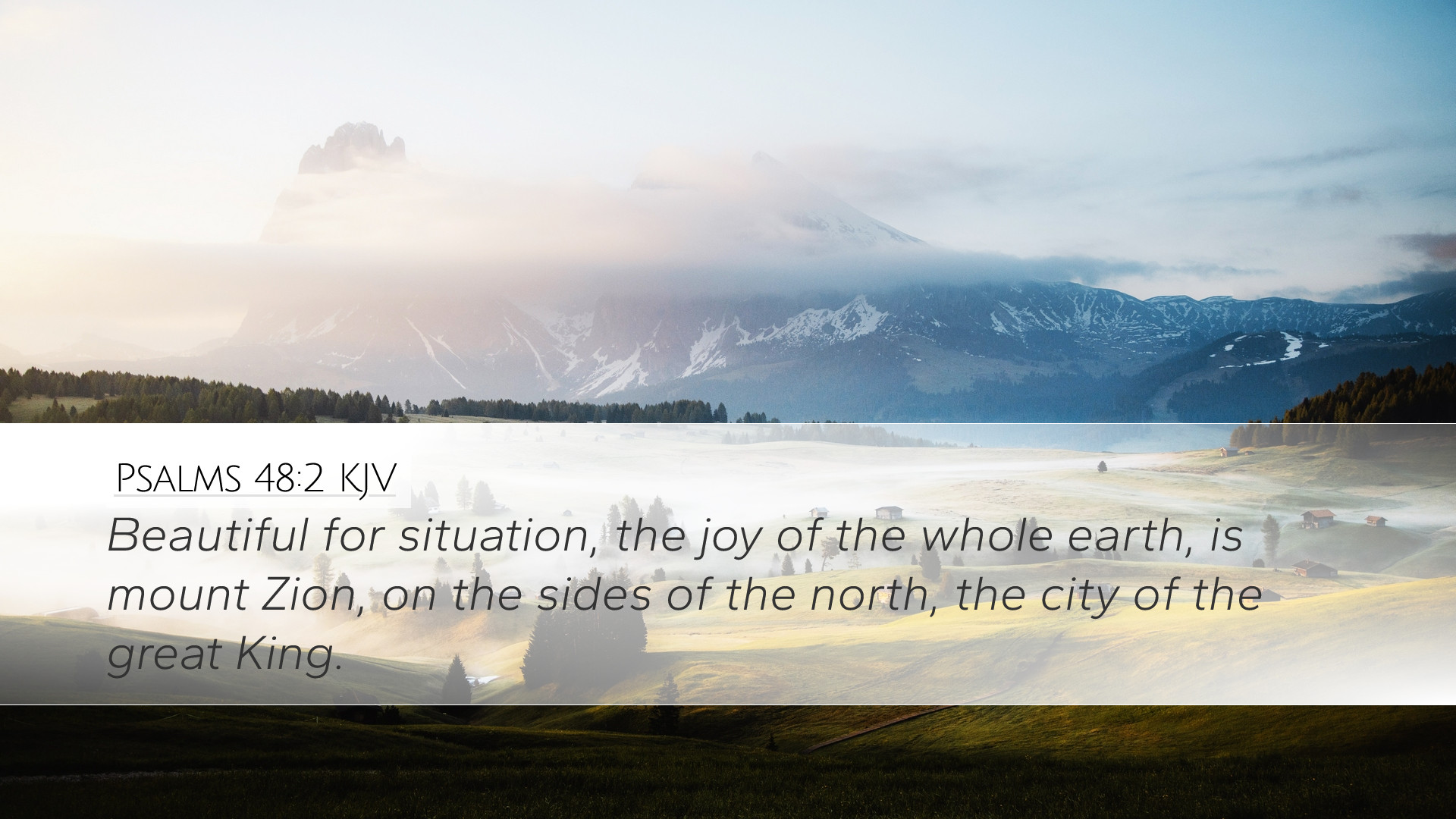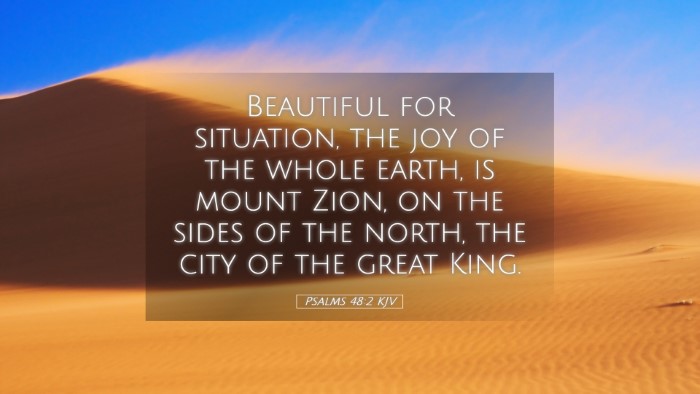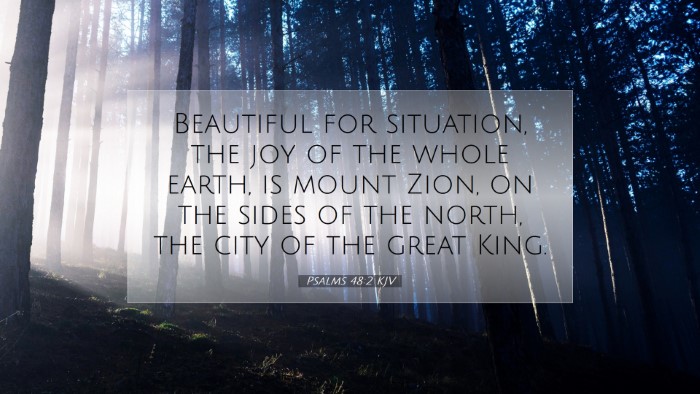Psalms 48:2 - A Commentary
Psalms 48:2 reads: "Beautiful in elevation, the joy of the whole earth, is Mount Zion, in the far north, the city of the great King." This verse encapsulates the splendor and significance of Mount Zion in the divine narrative, serving as a focal point for the glory of God and the joy of His people.
1. The Beauty of Mount Zion
The beauty described in this verse can be understood not merely as a physical characteristic, but as a representation of spiritual truths. Both Adam Clarke and Albert Barnes suggest that the elevation of Mount Zion implies its importance and prominence. It stands not just as a geographical location, but as a symbol of God’s presence with His people.
-
Clarke's Insight:
Adam Clarke emphasizes that Mount Zion’s elevation signifies the lifting up of the faithful. The church, represented by Zion, is elevated above the troubles of the world, serving as a beacon of hope and sanctuary for those who seek refuge.
-
Barnes' Perspective:
Albert Barnes interprets the beauty as a divine beauty; it is God Himself that beautifies Zion through His presence. Thus, the beauty of Mount Zion reflects the splendor of God's holiness and His faithfulness to His promises.
2. The Joy of the Whole Earth
The phrase "the joy of the whole earth" indicates the universal significance of Zion. Henry notes that Zion is not just a source of joy for Israel, but for all nations. The blessings that flow from Zion extend to all the earth, underscoring a theme of God’s redemptive plan for humanity.
-
Henry's Commentary:
Matthew Henry articulates that the joy associated with Mount Zion stems from God's salvation and love, extending joy not only to the Israelites but as a promise of hope to all mankind. The establishment of God’s kingdom on earth through Zion is seen as central to the joy of nations.
-
Universal Symbolism:
This joy is encapsulated in the life of Christ, who fulfills the role of the great King. Zion is a precursor to the kingdom that comes through Jesus, making the city's historical and prophetic significance pertinent in a Christian context.
3. The Great King
The designation of Mount Zion as “the city of the great King” is rich in theological implications. This established a direct connection between the physical space of Jerusalem and the majesty of God. It indicates that God reigns supreme within Zion, ensuring its protection and glory.
-
Clarke’s Interpretation:
Clarke points out that this title of "great King" reflects God’s sovereign power and dominion. The psalmist rejoices not merely in the city itself, but in the King who dwells there and governs the world.
-
Barnes on Divine Kingship:
Barnes elaborates on this divine kingship, emphasizing that God’s reign is characterized by justice, peace, and righteousness, making Zion a testament to His nature. This conception of kingly rule transforms our understanding of leadership within the church.
4. Theological Reflections
The theological implications of Psalm 48:2 extend beyond its immediate context into the broader biblical narrative. Mount Zion, thus, becomes a type of Christ and a foreshadowing of the New Jerusalem, representing the ultimate hope awaiting believers.
-
Eschatological Significance:
The psalm presents an eschatological vision that Christians hold dear. The beauty, joy, and kingship connected with Mount Zion find their culmination in the person of Jesus Christ and the future fulfillment of His eternal kingdom.
-
Application for Believers:
For pastors and theologians, the call is for congregants to recognize that their identity is tied to their citizenship in Zion, encouraging believers to live in the joy and beauty of their calling, reflecting the character of the great King in their lives.
5. Conclusion
In summary, Psalm 48:2 invites deep reflection on the richness of God’s presence among His people, the joy that flows from His reign, and the beauty of His kingdom. It stands not only as a hymn of praise but also as an encouragement for believers to recognize their significant place in God's redemptive plan through Zion. The insights from Matthew Henry, Albert Barnes, and Adam Clarke provide a well-rounded understanding of this verse, reinforcing its relevance for the church today.


